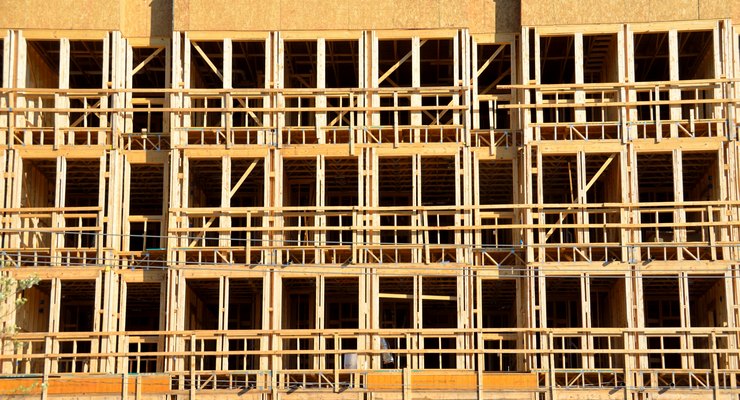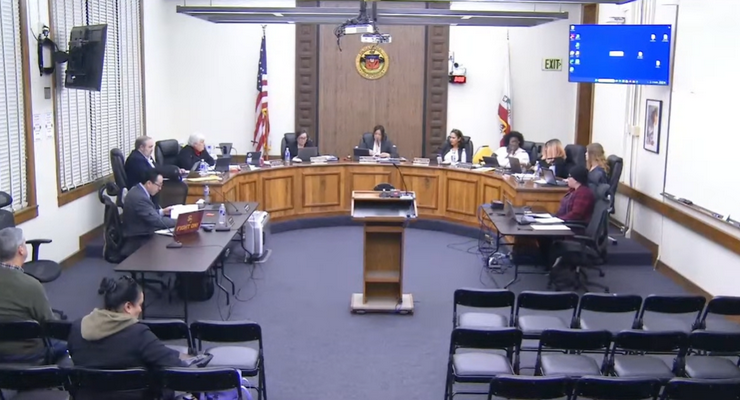The Southern California Association of Governments (SCAG) Monday denied an appeal by Pasadena of its Regional Housing Needs Assessment (RHNA) allocation by the state, which is mandating that the city ensures the building of 9,400 units of new housing by October 2029.
SCAG’s decision is preliminary. The final determination will not be released until after January 22 when the RHNA Appeals Board issues its proposed Final RHNA Allocation Plan.
The large number of housing units Pasadena was allocated came in response by the State last year to California’s overwhelming housing crisis. The California Department of Housing and Community Development (HCD) determines the share of the state’s housing need for each region based on population projections, and other factors identified in recent housing legislation, to create the number of housing units to be built by each California city.
Former Mayor Terry Tornek said at the time the mandate was issued that it would “destroy single-family housing in Pasadena.”
In Monday’s hearing, the RHNA Appeals Board made the decision to deny the Pasadena appeal with a 4-0 vote, with two abstentions.
In a statement, a spokesperson for SCAG said, “Once … all appeals have been heard, SCAG will make a final determination for each appeal and issue a proposed Final RHNA Allocation Plan. SCAG will hold a public hearing for adoption of this proposed Final RHNA Allocation Plan by the Regional Council.”
After adoption, SCAG will submit the Final RHNA Allocation Plan to the State’s Housing Department.
In its appeal to SCAG, the City of Pasadena argued that “The application of the adopted RHNA methodology failed to meet one of the primary objectives of State housing law – increasing the supply of housing throughout the region in an equitable manner.”
Pasadena also contended in its appeal that “surrounding cities have maintained economic exclusivity and racial homogeneity and have not adequately provided their fair share of the regional housing burden, particularly for lower income housing needs.”
In response to Pasadena’s appeal, SCAG’s decision said, “The appeal based on an improper application of the adopted RHNA methodology is not accepted, because sufficient evidence was not provided to demonstrate that SCAG’s application of the adopted Final RHNA Allocation Methodology to determine the City of Pasadena’s share of regional housing need was improper.”
Pasadena also argued that per the City’s General Plan adoption in 2015, the Fuller Theological Seminary was an integral part of the Pasadena community, and the Seminary’s 2006 Master Plan adopted by the City supported the college’s plan to build an additional 514 residential units for faculty and students, approximately 264 units of which have subsequently been built.
SCAG staff disagreed, saying, “The appeal based on a change in local circumstances was not demonstrated to be a justifiable factor for reducing the City’s RHNA Allocation.
The decision continued, “It is assumed that any projected decline in the college student population in Pasadena was reflected when the City provided local input on household growth in support of the SCAG Growth Forecast development process.
Said SCAG, “No evidence was submitted that the lower- and moderate-income household projections for the City of Pasadena have changed since the time of the Growth Forecast local input process. Additionally, it was not sufficiently demonstrated that the current reduction in student enrollment at the Fuller Seminary will be a permanent condition that will not change during the eight-year RHNA cycle.”
Former Pasadena Mayor and Santa Monica City Manager Rick Cole reacted to the decision Monday, saying, “The appeal’s denial was no surprise. The Council has made its symbolic protest. Now comes the hard part: preparing a Housing Element which realistically plans for building 9,000 units of housing in Pasadena, two-thirds of them designated ‘affordable.’
Cole continued, “That’s the law. Everyone knows how challenging that will be – it will require broad community participation to come up with a reasonable plan the State will approve – and one that is positive for Pasadena. The time to get serious about that was last fall, but with the denial of the appeal, there’s no excuse for waiting longer.”



















